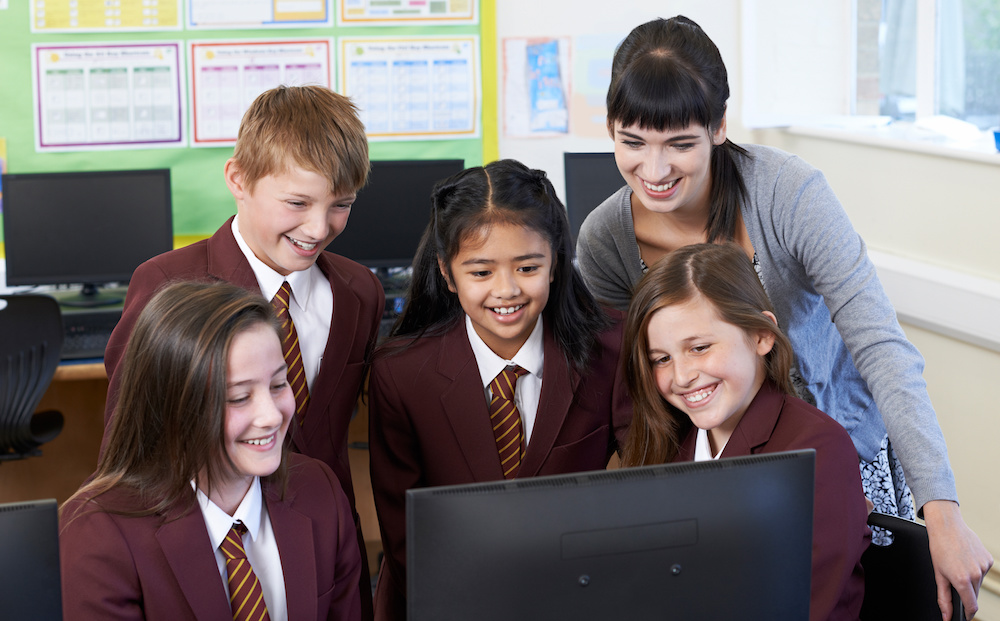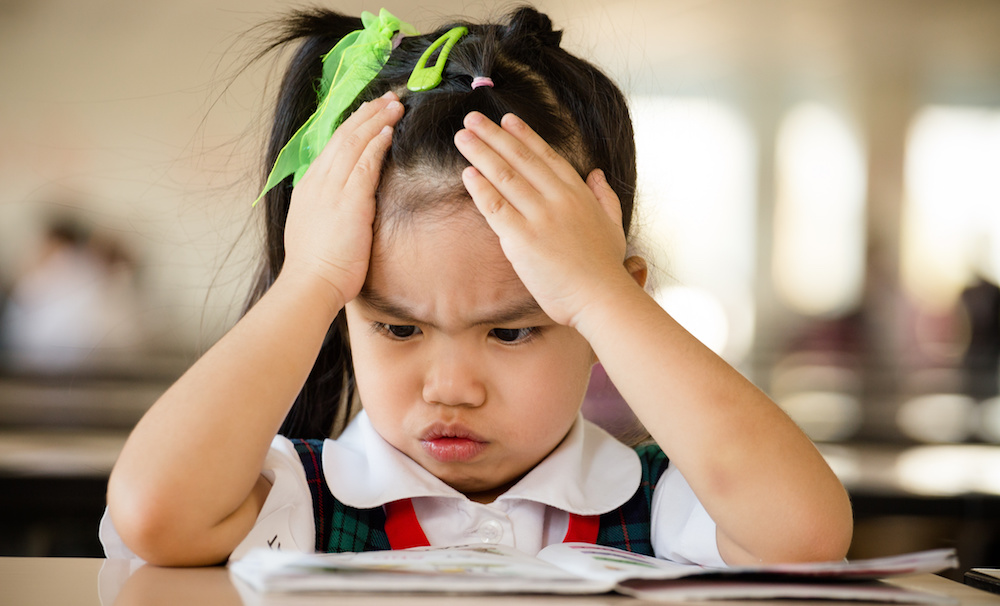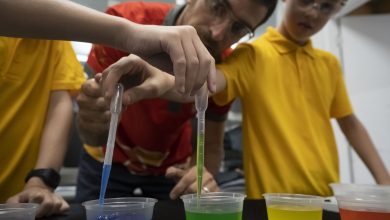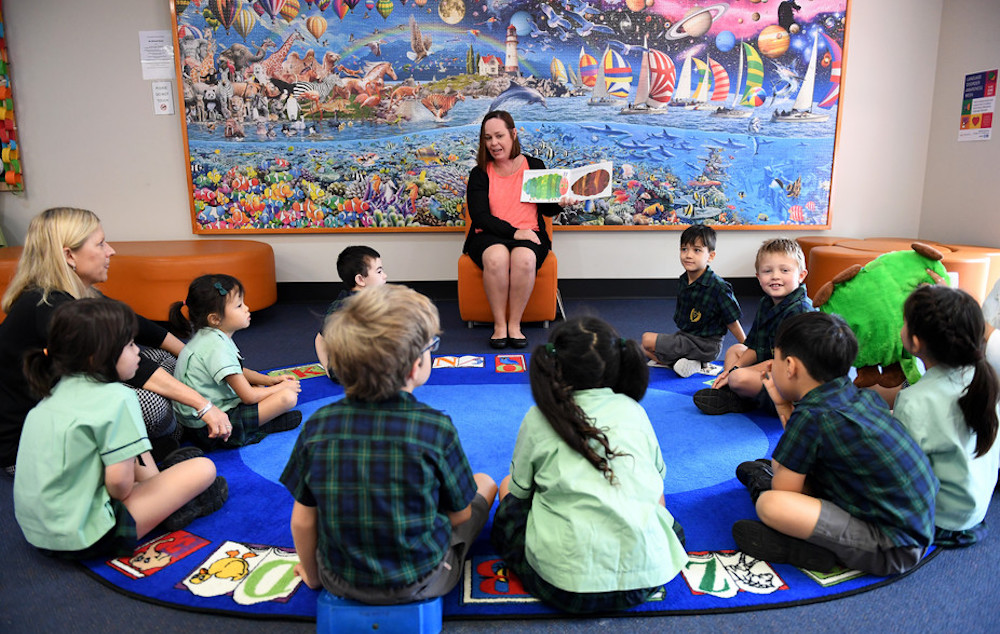
Australian parents want their children to have access to a ‘holistic education’, however cultural influences, location and income all play a role in parental expectations of their child’s academic success, reveals a new study from ASG and Monash University.
The ASG Parents Report Card investigates the state of education in Australia from parents’ perspectives. Undertaken by Associate Professor Sivanes Phillipson and Associate Professor Shane N. Phillipson at the Faculty of Education at Monash University, the report reveals that parents want teachers to do more when it comes to teaching their child about social and life skills inside the classroom.
“Historically, social and life skills are taught within the home and the development of skills and knowledge needed for a successful career have been taught in school. However, perceptions about what equals academic success is changing and so, for today’s parents social and life skills are becoming an increasingly important element in education,” said John Velegrinis, CEO, ASG.
Cultural divide over sex education and cyber safety
“The report confirms that parents want teachers to play a greater role developing their children’s life skills. However, there was a strong but divided stance on discussing topical issues, such as sexuality and cyber safety; with the level of input depending on the cultural background and age of the child,” added Mr Velegrinis.
According to the ASG Parents Report Card, 69 percent of parents believe schools should do more to teach their child about social skills. When ethnicity is factored in, the proportion increases substantially to 94 percent among Indian and other Asian parents. Furthermore, 49 percent of parents agree they would like their child’s school to do more about teaching them how to behave in public, which increases to 74 percent among Indian and other Asian parents.
“The findings suggest there are increasingly blurred lines as to where responsibility begins and ends as parents’ perceptions of their traditional roles and responsibilities change,” Mr Velegrinis continued.
The analysis revealed that parents have strong views on how the school environment keeps pace with topical issues, such as sexuality and cyber safety.
Just 34 percent of all parents agree schools are the best place for their child to learn about sexuality. When cultural influences are factored in, only 25 percent of Australian parents believe that sexual education is best learnt at school versus 62 percent of Indian and other Asian parents. Furthermore, 74 percent of Australian parents agree they can openly talk about sex at home, but this falls to 60 percent for Indian and other Asian parents.
“While the topic of sex education may be culturally dependant, parents, teachers and schools must have ongoing discussions about the role of sexuality and sex education to best determine how much of it is part of the curriculum, and what needs to be done at home.
This is important to make sure no child misses out on this essential developmental opportunity,” said Associate Professor Shane Phillipson, Faculty of Education, Monash University.
The ASG Parents Report Card found that parents of younger children would like schools to be more involved in teaching their child about cyber safety. Fifty four percent of all parents would like teachers to do more to protect their child from cyber predators, and this percentage increases for parents with children in early learning and primary school.
“The growing use of technology, including phones and tablets, at home and at school, can leave children vulnerable to the dark side of the online world. It’s important for parents to openly discuss and advise their children how to use these platforms wisely,” added Dr Phillipson.
The report also revealed that location and income shape both the views of parents and the value they place on academic success.
Seventy five percent of parents who live in metropolitan cities set high standards for their children’s academic achievement, compared to 63 percent of parents who live in regional areas. Furthermore, 80 percent of parents who live in metropolitan areas believe a degree will help their children achieve their ambitions and 75 percent of rural parents agree.
“For those living in regional areas, aspirations could be linked to their rural environment, with a degree perhaps not considered essential to success. The greater emphasis on academic success for metropolitan based parents could be attributed to the perceived access to educational resources,” Dr Phillipson noted.
With 2017 marking 10 years since the introduction of NAPLAN, the ASG Parents Report Card examined parents’ perceptions of the value of the NAPLAN testing system.
When asked about their children’s academic achievement, many parents expressed concern about the level of financial resources available to support their children’s success. Furthermore, nearly 60 percent believe that their children could do more in terms of being attentive to their learning. Ultimately, however, Australian parents believe that skills and knowledge are the most important resources that contribute to academic success such as NAPLAN scores.
“NAPLAN represents a very narrow view of what is being taught in the curriculum, with no measure for social development, including the social and mental health of children. This is an important component to receiving a holistic education, which is highly valued by Australian parents,” concluded Mr Velegrinis.







